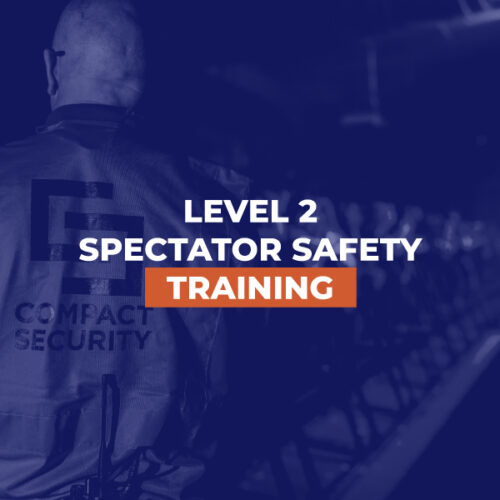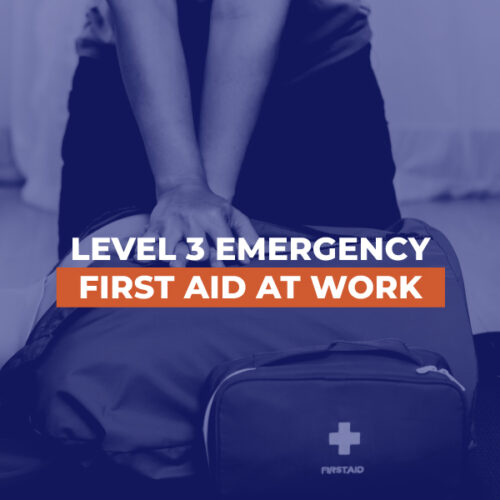- Introduction to PIT Barrier Operations: Understand the fundamentals of PIT barriers and their role in event safety.
- Crowd Management Techniques: Learn strategies for managing large crowds, including recognising potential hazards and taking proactive measures to prevent incidents.
- Emergency Procedures: Gain knowledge on how to respond to emergencies, including evacuation procedures and first aid basics.
- Legal and Safety Requirements: Stay up-to-date with the latest regulations and best practices to ensure compliance with safety standards.
- Communication Skills: Develop effective communication skills for coordinating with team members, event organisers, and emergency services.
-
 Course Fee £75 Duration 8 Hours Example Course Content
Course Fee £75 Duration 8 Hours Example Course Content -

STARTING JANUARY 2025
Course Fee £245 Duration Example Course ContentWhat You Will Learn
- Fundamentals of Spectator Safety: Understand the key principles of maintaining safety and security at events.
- Crowd Management Strategies: Learn how to effectively manage large groups of people, including recognising potential risks and implementing preventive measures.
- Emergency Response Procedures: Gain essential skills in handling emergencies, including evacuations and first aid.
- Legal and Regulatory Requirements: Stay informed about current laws, regulations, and best practices to ensure compliance with safety standards.
- Effective Communication: Develop strong communication skills to coordinate with team members, event organisers, and emergency services.
-
 Course Fee £60 Duration 1 Days Example Course Content
Course Fee £60 Duration 1 Days Example Course Content- Introduction to First Aid: Understand the basic principles of first aid and the role of a first aider in the workplace.
- Assessing an Incident: Learn how to evaluate an emergency situation, including conducting a primary survey and prioritising care.
- CPR and AED: Gain proficiency in performing cardiopulmonary resuscitation (CPR) and using an automated external defibrillator (AED).
- Managing Unresponsive Casualties: Develop skills to manage breathing and non-breathing casualties, including recovery positions and rescue breaths.
- Control of Bleeding and Shock: Learn techniques to control severe bleeding and manage shock.
- Minor Injuries and Common Conditions: Understand how to treat minor injuries such as cuts, burns, and fractures, as well as recognising and responding to common medical conditions like asthma, diabetes, and seizures.


